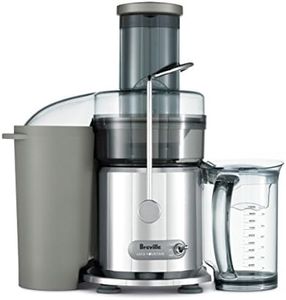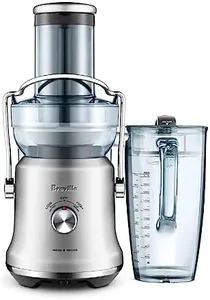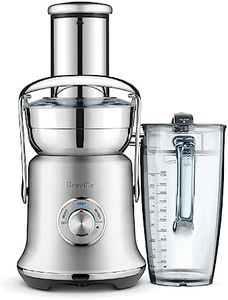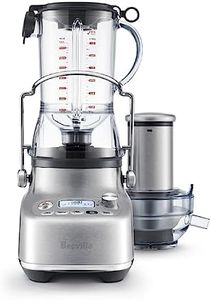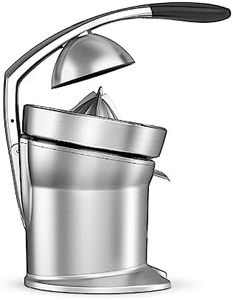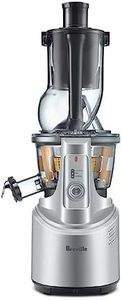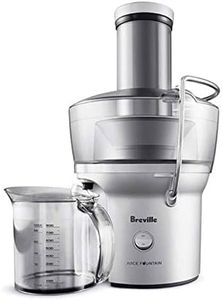We Use CookiesWe use cookies to enhance the security, performance,
functionality and for analytical and promotional activities. By continuing to browse this site you
are agreeing to our privacy policy
7 Best Breville Juicers
From leading brands and best sellers available on the web.By clicking on a link to a third party's website, log data is shared with that third party.
Buying Guide for the Best Breville Juicers
Choosing the right juicer can make a big difference in how much you enjoy making and drinking juice at home. There are many different types of juicers, each suited to different needs and preferences. When starting your search, think first about what fruits and vegetables you want to juice most often, how much space you have in your kitchen, and how much time you want to spend on prep and cleaning. Knowing these preferences will help guide you through the features and specifications to look for.Type of JuicerThe two main types of juicers you’ll find are centrifugal juicers and masticating (also called slow or cold press) juicers. Centrifugal juicers are faster and generally better for juicing hard fruits and vegetables like apples and carrots, but they can be a bit louder and less efficient with leafy greens. Masticating juicers work more slowly but do a better job with leafy greens and can extract more juice from each ingredient. If you want quick results and will mostly juice hard produce, centrifugal may be your fit. If you plan to juice a variety of produce and value juice quality and yield, masticating might suit you better.
Juice Yield and Pulp DrynessJuice yield refers to how much juice the machine can extract from the produce you use, and pulp dryness indicates how much liquid is left in the leftover pulp. Machines that leave drier pulp are more efficient, squeezing more juice from your ingredients. If you don't want to waste a lot of produce, or you plan to juice expensive or leafy items, look for a juicer known for high yield and dry pulp.
Feed Chute SizeThe feed chute is the opening through which you put fruits and vegetables into the juicer. A wider chute can handle larger pieces or whole fruits, saving you time on prep since you won’t need to chop everything so finely. If you like convenience and speed, a wider chute could be an advantage.
Ease of CleaningJuicing can be messy, so a juicer that’s easy to take apart and clean is important, especially if you plan to use it daily. Some models are dishwasher safe, while others require hand washing. Look for models described as easy to clean if this is important to you, and think about how much effort you’re likely to put into cleaning after each use.
Noise LevelCentrifugal juicers are usually noisier than masticating ones. If you’ll be juicing in the morning or in a household where noise is a concern, a quieter model may be worth considering. If noise doesn’t bother you or you juice during daytime hours, this may matter less.
Size and DesignJuicers come in a range of sizes, and some can take up more counter or storage space than others. Take stock of your kitchen space before choosing. Also, consider whether you prefer a sleek look or a more functional design, depending on whether your juicer will live on your countertop or be put away between uses.
Accessories and Extra FunctionsSome juicers offer extra attachments or features, like the ability to make nut milk or sorbet, or come with different filter baskets for varying pulp levels. If you want to do more than just juicing standard fruits and veggies, look for machines that offer these added functions.
